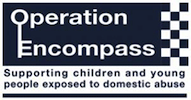
Mr Hodder is responsible for the mathematics curriculum in our school
The Intent of Our Whole School Maths Curriculum
At the Cathedral Catholic Primary School, we want our children to LOVE ma ths, enjoy the challenge of solving calculations and real-world problems and understand the importance of mathematics to everyday life. We recognise that to enable this, our children should be curious, excited and engage fully with our maths curriculum; empowering them to be independent, resourceful and resilient mathematicians.
ths, enjoy the challenge of solving calculations and real-world problems and understand the importance of mathematics to everyday life. We recognise that to enable this, our children should be curious, excited and engage fully with our maths curriculum; empowering them to be independent, resourceful and resilient mathematicians.
We whole-heartedly believe that this approach will provide the aims set out by the National Curriculum for Mathematics that “..a high-quality mathematics education therefore provides a foundation for understanding the world, the ability to reason mathematically, an appreciation of the beauty and power of mathematics, and a sense of enjoyment and curiosity about the subject.”1
We aim to:
- Provide a research-based Mastery approach where children can explain their understanding of mathematical principles
- Empower children to explore, make links between other curricular learning and express themselves confidently
- Encourage children to take responsibility and play an active role in their learning
- Enable children to draw on a range of problem-solving strategies in unfamiliar situations where well-rehearsed and readily available strategies are unavailable
- Ensure the acquiring of conceptual and procedural knowledge in tandem to promote fluency and address misconceptions2
The Implementation of our Whole School Maths Curriculum 
The Cathedral Catholic Primary School is undertaking a process of adopting and embedding the Red Rose for Mastery pathway as a framework for EYFS, KS1 and KS2 – whilst using teacher knowledge and experience to adapt and alter content where necessary to best suit the learning needs of specific cohorts or individual children.
This blended approach provides an unambiguous, well-sequenced research-based framework to deliver clearly sequenced lessons to ensure maximum attainment and progression for every child, whilst also providing more powerful learning opportunities via alternative challenges and activities for those children working below or towards key stage expectations.3
In EYFS, children benefit from the immediate immersion in mathematical play, providing an abundance of opportunity to experience mathematical language and thinking skills. Children engage positively with the Early Learning Goals of number and numerical patterns4; igniting their imaginations, encouraging their creativity and promoting a life-long love of maths through games, practical manipulatives and enquiry and challenge. This approach is further underpinned by staff implementing additional NCTEM materials designed to assist Early Years practitioners to confidently help children to bring the numbers and ideas to life in the world around them.5
Staff in Key Stage 1 and 2 at the Cathedral Catholic Primary School, use an amended approach based on the Red Rose for Mastery scheme as a central spine that provides a fundamental framework to plan and deliver appropriate learning journeys in maths for every child.
Research shows unequivocally that high-quality teaching is pivotal in improving children’s outcomes and narrow the disadvantage gap.6 At the Cathedral Catholic Primary School, our experienced staff ameliorate the Red Rose for Mastery framework by the use of additional and alternate physical resources and pictorial representations to help pupils see underlying mathematical structures as well as teaching and modelling new vocabulary, regularly checking pupils’ understanding and swiftly picking up misconceptions. A central constant of this approach is the use of games, practical manipulatives and mathematical models grounded in real-life, to follow a mastery approach.
We embed best practice in our school by:
- Using assessment to build on pupils’ existing knowledge and understanding
- Using manipulatives and representations
- Teaching strategies for solving problems
- Enabling pupils to develop a rich network of mathematical knowledge
- Developing pupils’ independence and motivation
- Using tasks and resources to challenge and support pupils’ mathematics
- Using structured interventions to provide additional support
- Supporting pupils to make a successful transition between Primary and Secondary school2
By avoiding rigid adherence to an unamended scheme, we also provide for greater spaced retrieval opportunities that are absent from most linear curricular progression plans.7 By amalgamating the Red Rose for Mastery scheme it becomes a powerful framework onto which our experienced teachers can add additional, targeted adaptations to maximise impact on learning.
Impact of our Whole School Maths Curriculum

Children progressing from EYFS to Year 1 are prepared and engaged with mathematics. Staff work together to ensure a smooth progression between keystages.8
Our children learn more, understand more and remember more. Children’s assessments inform the pace of curriculum progression, as well as highlight areas that demand additional teaching. Our staff are experienced at using assessment opportunities to ensure swift and appropriate interventions and additional provisions. Interventions are appropriate, rapid and targeted to ensure knowledge and understanding is broadened and reinforced whilst misconceptions are challenged effectively.
Our children can use and apply their mathematical learning to solve problems, explain answers and challenge assumptions. Children have started to develop their metacognition and begun to analyse and evaluate their own thinking and learning. 2
They enjoy maths and they want to continue to learn maths.
The Maths Learning Overviews for each Year Group
Maths Overviews
Maths Termly Expectations
Subtraction Calculation Policy
Multiplication Calculation Policy
Maths Carousels
Pupils at the Cathedral Catholic Primary School engage in mathematics in lots of different ways, including being outside the classroom in real-world settings. Every half-term, every child participates in a ‘Maths Carousel Morning’ where they visit a different classroom within their key stage and complete a series of fun tasks and activities. We also try to stage these Carousel mornings outside and plan to use a range of manipulatives and resources to transform problem solving into exciting and challenging tasks and activities that support everyone’s learning.

Learning Times Tables
From 2020, Year 4 children have taken a times tables assessment in June. The national expectation is that by the end of Year 4, all children will have a secure knowledge of all times tables to 12x12. However, the earlier your child learns their tables, the more confident and able they will be.
The official publication from the Department of Education - Multiplication tables check assessment framework - can be found here.
At Home
It is crucial to make learning in maths fun; from cooking in the kitchen to shopping in the store, children can practice and apply their mathematical knowledge in all aspects of everyday life. There are countless apps available from the Apple and Google Playstore, however the best resource your child could ever use is YOU! Get involved... learn your tables with your child, allow them responsibility to work out the costs and collect the correct change on their own and even explore any areas of maths that they find difficult together.
If you do wish to use digital resources, your child can practice their times tables using their Purple Mash login - the multiplication test app is an excellent way to practice and secure your times tables knowledge. Alternatively, explore:
Finally, a handy guide to understanding key parts of the curriculum can be found in your child's School Planner
Research:
2 https://educationendowmentfoundation.org.uk/education-evidence/guidance-reports/maths-ks-2-3
4 https://assets.publishing.service.gov.uk/media/65253bc12548ca000dddf050/EYFSP_2024_handbook.pdf
5 https://www.ncetm.org.uk/classroom-resources/ey-numberblocks-support-materials/
6 Slater, Davies, and Burgess (2012), Do Teachers Matter? Measuring the Variation in Teacher Effectiveness in England, Oxford Bulletin of Economics and Statistics, 74 (5), pp. 629 – 645
7 https://thirdspacelearning.com/blog/white-rose-maths-resources/






.jpg)
.png)
.png)
